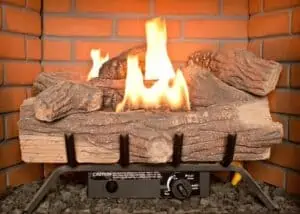How often should a fireplace be inspected for potential problems?
A fireplace is a great addition to any home, providing warmth and ambiance during cold winter months. However, fireplaces require regular maintenance to ensure they function safely and efficiently. One of the most important aspects of fireplace maintenance is regular inspections. Here are some guidelines on how often a fireplace should be inspected for potential problems.
(Looking For “Propane fireplace burner repair“? Contact us today?)

Annual Inspections:
According to the National Fire Protection Association, all fireplaces, chimneys, and vents should be inspected annually by a qualified professional. This is especially important for wood-burning fireplaces, as they produce more creosote buildup and debris than gas fireplaces. Annual inspections can help identify potential problems before they become major issues, such as creosote buildup, chimney obstructions, or damage to the chimney or fireplace itself.
Inspections before and after each heating season:
While an annual inspection is crucial, it may be beneficial to have additional inspections before and after each heating season. This can help ensure that the fireplace is in good working condition before it is used frequently during the winter months. It can also help identify any issues that may have occurred during the off-season, such as animal nesting, water damage, or deterioration due to weathering.
Regular Cleaning:
In addition to regular inspections, it is important to have your fireplace and chimney cleaned regularly. This can help prevent creosote buildup and chimney obstructions, which can cause chimney fires and other potential hazards. The frequency of cleaning will depend on how often the fireplace is used, the type of fuel used, and other factors. A qualified professional can help determine the appropriate cleaning schedule based on these factors.
Signs of potential problems:
In addition to regular inspections and cleaning, it is important to be aware of potential problems that may require immediate attention. Signs of potential problems may include:
- Smoke entering the home
- Difficulty starting or maintaining a fire
- Strong odor of smoke or gas
- Visible damage to the chimney or fireplace
- Debris or animal nesting inside the chimney
- Cracks or damage to the firebox
If any of these issues are present, it is important to have the fireplace inspected by a qualified professional as soon as possible.
Conclusion:
Regular inspections and maintenance are crucial for ensuring the safe and efficient operation of a fireplace. While an annual inspection is recommended, additional inspections before and after each heating season may be beneficial. Regular cleaning can also help prevent potential hazards, such as creosote buildup and chimney obstructions. Being aware of potential problems and addressing them promptly can help ensure the safety and longevity of your fireplace. A qualified professional can help identify and address any issues to ensure your fireplace operates safely and efficiently for years to come.

